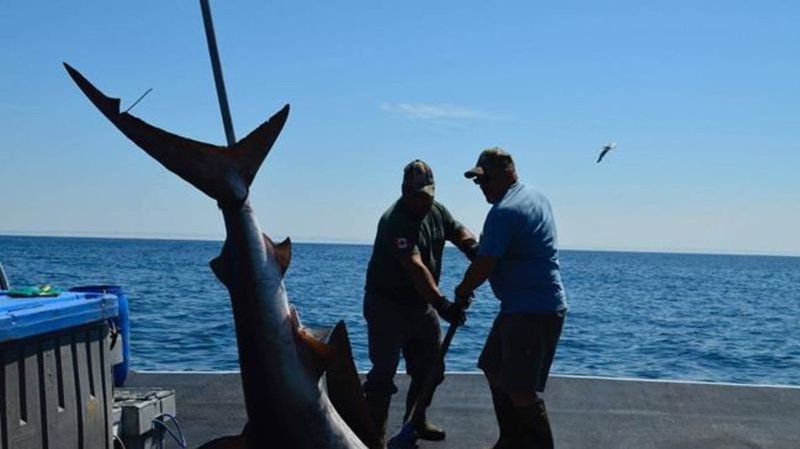
New government rules spell end for Nova Scotia’s distinctive shark-fishing derbies
Nova Scotia shark derbies, which for 30 years offered anglers a chance to land one of the ocean’s top predators, have been called off after authorities determined they no longer served a scientific purpose.
Fisheries and Oceans Canada had authorized the shark-fishing tournaments by issuing scientific licences so the animals could be studied after they were caught. But the department has informed derby organizers that its research program no longer needs derby-caught specimens.
Organizers of the Yarmouth Shark Scramble in southwestern Nova Scotia, the Petit de Grat Shark Derby in Cape Breton and the Lockeport Sea Derby in Shelburne County were given three options if they want to continue: follow a catch and release model in which the sharks don’t leave the water; use all sharks caught for human consumption; or find another organization to support research on the sharks caught.
“The decision to proceed or not with any of these options — and the request for any applicable required licence — rests with shark tournament organizers,” the department said in an emailed statement. The department declined to make anyone available for an in interview.
